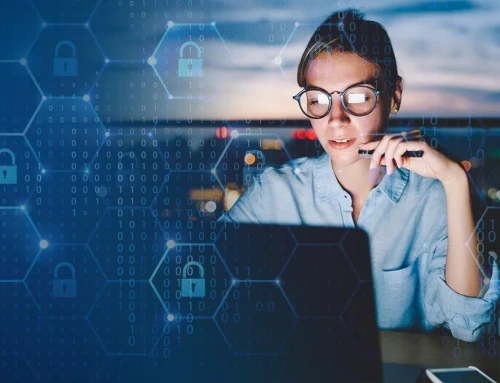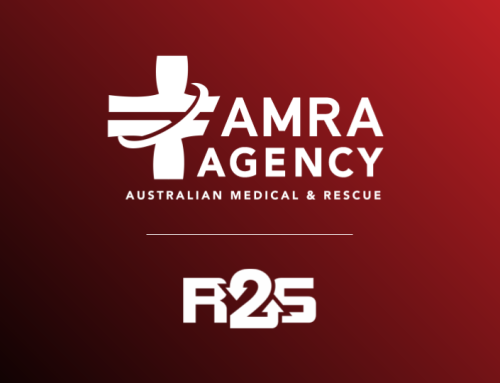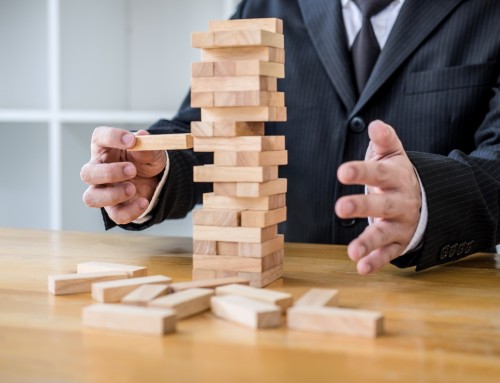We all play different roles at different times – parent, friend, employee, leader, employer, manager, partner, spouse, etc. But separating these is becoming harder and harder with technological advancement and globalisation. More and more, the lines between the three aspects of life – work, personal and virtual – are blurring, and even more so with remote work being the standard during the COVID crisis.
Here is where this gets interesting.
Expecting people to have vastly different quality between their personal decision making and work decision-making is naive, and dangerous.
To rephrase – how can we expect people to regularly make great decisions at work, if they regularly make poor decisions in their personal or online life?
Here is an example that may resonate with many of you during COVID 19:
Your kids are at home, and you are working from home. You wake up in the morning, make breakfast and attempt to answer some emails on your phone. You then take your child for a walk in the park. While you are walking you make a couple of calls to clients, answer an email. While your child is playing in the park you post a cat meme on Facebook, download a new audiobook, call a colleague and check out a couple of pictures your mum sent via WhatsApp.
In the space of 10 minutes, you mixed your work, personal and online life.
You downloaded pictures to the same device you checked a work email on, meaning you may have breached work cyber-security protocols. You may have been distracted and not noticed your child down in the park, or may have been distracted while crossing the road. Maybe someone was listening to your conversation with the clients when you were sitting in the park or cafe. You forget your boss is on Facebook as well and now you’re in trouble because you were supposed to be working, not sharing Karen’s Facebook cat memes.
The example above doesn’t seem that alarming… until something goes wrong. Maybe the image you downloaded was infected and now your email is hacked. Maybe you were too busy chatting and checking emails that your child fell down and hit their head on a rock.
Point is, if we are not aware of how these things intersect and the risks they pose, we might make poor decisions. Even more so, if are aware but can’t or are unwilling regulate our behaviour to be more careful, how can we perform to a good standard at work, especially during challenging times?
On the other hand, educating and empowering people to make better decisions with regards to their personal lives and safety will filter through to both productivity and decision making at work.
Compliance-heavy approaches do not work, and simply expecting compliance from employees doesn’t work either. Relying solely on procedures to motivate people to do the right thing isn’t effective. Sure – it might help you ensure that you have done the minimum to meet your duty or care requirements. But will it help you improve productivity, innovation, resilience and create high reliability? Will it help you recover better from a negative shock?
Now imagine a workplace where people made good decisions because they were educated on doing so, understood the overall purpose of the organisation and believed what they are doing matters.
What it comes down to is that we must educate and empower employees at all levels of an organisation to make better decisions, and understand both operational and strategic considerations when doing so. When that happens, we won’t have to rely on 1,200-page documents to manage every aspect of employee behaviour. That is when they will only do what’s best because they have to.
If we can improve decision-making on an individual and personal level, combined with an understanding and belief in a unified sense of purpose, we won’t have to rely on such documents.
If you want a great example of this, consider the invasion of Normandy in World War II. The largest, most successful land, air and sea invasion in recorded history had a unified, powerful sense of purpose… and a 5-page plan (with 9 pages of annexures!).
Do you think this would have worked if each individual in the Allied forces did not know the risks to their personal safety or believe in the higher purpose?
Do you think a 1,200-page document outlining every aspect of every soldier’s behaviour would have worked, and would it have been followed?
Don’t you think that if the the largest invasion of Europe can be planned in 5 pages and yet we need hundreds of pages to get employees not to open unsafe emails or wear a hard hat, we doing something wrong?!
Thankfully we are not amidst a World War right now, but that takes us back to the initial discussion – Black Swan events (or at least, events that are considered highly unlikely or rare), rate of technological development, artificial intelligence and issues with global ramifications are becoming more and more common.
And it’s up to us to be ready so we can come back stronger.
And the best way to do that?
You guessed it. Make sure individual decision making is optimised from the ground up.
Your mission, if you choose to accept it: Go through your safety and risk documents and think about what would be eliminated if you could educate people to make better decisions. Chances are you’ll start seeing a lot of things. Come talk to us – we can help!
Up next…how do we learn from past events to improve future performance?



